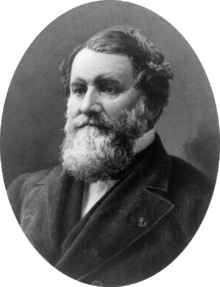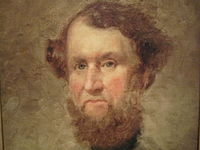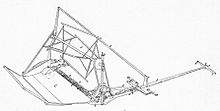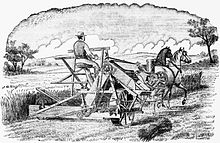Activism
McCormick had always been a devout Presbyterian, as well as advocate of Christian unity. He also valued and demonstrated in his life the Calvinist traits of self-denial, sobriety, thriftiness, efficiency, and morality. He believed feeding the world, made easier by the reaper, was part of his religious mission in life.[citation needed]
A lifelong Democrat, before the American Civil War, McCormick had published editorials in his newspapers, The Chicago Times and Herald, calling for reconciliation between the national sections. His views, however, were unpopular in his adopted home town. Although his invention helped feed Union troops, McCormick believed the Confederacy would not be defeated and he and his wife traveled extensively in Europe during the war. McCormick unsuccessfully ran for Congress as a Democrat for Illinois's 2nd congressional district with a peace-now platform in 1864, and was soundly defeated by Republican John Wentworth. He also proposed a peace plan to include a Board of Arbitration. After the war, McCormick helped found the Mississippi Valley Society, with a mission to promote New Orleans and Mississippi ports for European trade. He also supported efforts to annex the Dominican Republic as a territory of the United States.[citation needed] Beginning in 1872, McCormick served a four-year term on the Illinois Democratic Party's Central Committee.[citation needed] McCormick later proposed an international mechanism to control food production and distribution.
McCormick also became the principal benefactor and a trustee of what had been the Theological Seminary of the Northwest, which moved to Chicago's Lincoln Park neighborhood in 1859, a year in which he endowed four professorships. The institution was renamed McCormick Theological Seminary in 1886, after his death, although it moved to Chicago's Hyde Park neighborhood in 1975 and began sharing facilities with the Lutheran School of Theology at Chicago.
In 1869, McCormick donated $10,000 to help Dwight L. Moody start YMCA, and his son Cyrus Jr. would become the first chairman of the Moody Bible Institute.
McCormick and later his widow, Nettie Day McCormick, also donated significant sums to Tusculum College, a Presbyterian institution in Tennessee, as well as to establish churches and Sunday Schools in the South after the war, even though that region was slow to adopt his farm machinery and improved practices. Also, in 1872, McCormick purchased a religious newspaper, the Interior, which he renamed the Continent and became a leading Presbyterian periodical.[citation needed]
For the last 20 years of his life, McCormick was a benefactor and member of the board of trustees at Washington and Lee University in his native Virginia. His brother Leander also donated funds to build an observatory on Mount Jefferson, operated by the University of Virginia and named the McCormick Observatory.



